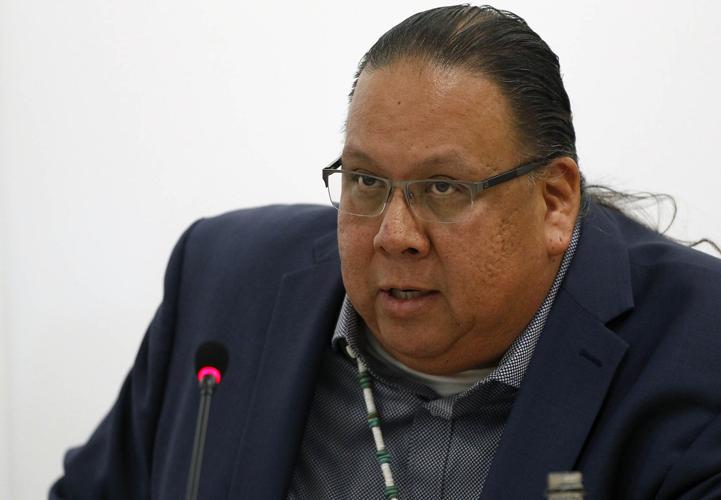PHOENIX — House Speaker Rusty Bowers is blowing off a threat by the Gila River Indian Community to pull out of the drought contingency plan — and deny the state the tribe’s water — if he pursues his own legislation on forfeiture of water rights.
“If they want to pull out of a deal that benefits both the state and the community, that is their choice,” Bowers, R-Mesa, said in a written statement late Friday. “We hope they will reconsider.”
The federally required drought contingency plan, known as DCP, determines how Arizona should deal with loss of water from the Colorado River because of declining levels of Lake Mead.
Gila River Indian Community Gov. Stephen Roe Lewis sent a letter Thursday saying his council would not consider signing its part of the DCP if Bowers pushes ahead with legislation the tribe believes interferes with its own separate claim to water rights from the Gila River.
Bowers countered, “I think it is unfortunate and inappropriate that leaders of the community are now trying to leverage their support of the DCP on the defeat of this unrelated bill.”
But House Minority Leader Charlene Fernandez, D-Yuma, said Friday it is Bowers who is acting improperly in pursuing his bill.
Fernandez accused the speaker of trying to “provoke one of our most vital partners,” whose 500,000 acre feet of water between 2020 and 2026 “is crucial to replacing some of the water the state will no longer be able to draw from the Colorado River.”
Fernandez warned that if the deal falls apart, it will be federal officials who decide who are the Colorado River water winners and losers.
Sen. Lisa Otondo, D-Yuma, who was involved in crafting the drought contingency plan, was more direct.
She accused Bowers of “sabotaging” the drought plan and saying what he’s trying to do is illegal.
Bowers, however, said he remains convinced that his House Bill 2476 is needed, even if it means the tribe denies the state its water.
At issue are ongoing legal claims by the tribe over who has the right to water from the Gila River.
The tribe is relying on an existing law that says if people do not use their water rights for a period of five years, those rights can be declared forfeited unless there’s a justified excuse.
There is a federal appeals court decision saying the use-it-or-lose-it law applies even to water rights first acquired prior to 1919.
HB 2476, set for a hearing Tuesday before the House Committee on Natural Resources, Energy and Water, would eliminate that automatic forfeiture.
Tribal attorney Don Pongrace said that would interfere with his client’s claims to such water from the Gila River.
Bowers said his legislation is justified.
“Dozens of rural families are being financially destroyed by ongoing litigation brought by the Gila River Indian Community,” he said.
“I initiated HB 2476 to stop this from happening in the future.”
Bowers, in his Friday comments, made no mention of the fact that if the tribe pulls out of the DCP, the state loses 500,000 acre feet of water the Gila River Indian Community has committed to provide in exchange for $60 million from various state sources.
So far, Republican Gov. Doug Ducey has been silent on the Bowers legislation, with aides declining to discuss the issue or whether the governor would veto the bill if it gets to his desk. Instead, their only comment is that Ducey is focused now on getting the necessary federal approval for the multi-state DCP.
A March 4 deadline is set by Bureau of Reclamation Commissioner Brenda Burman for all Colorado River Basin states to have completed their plans.







